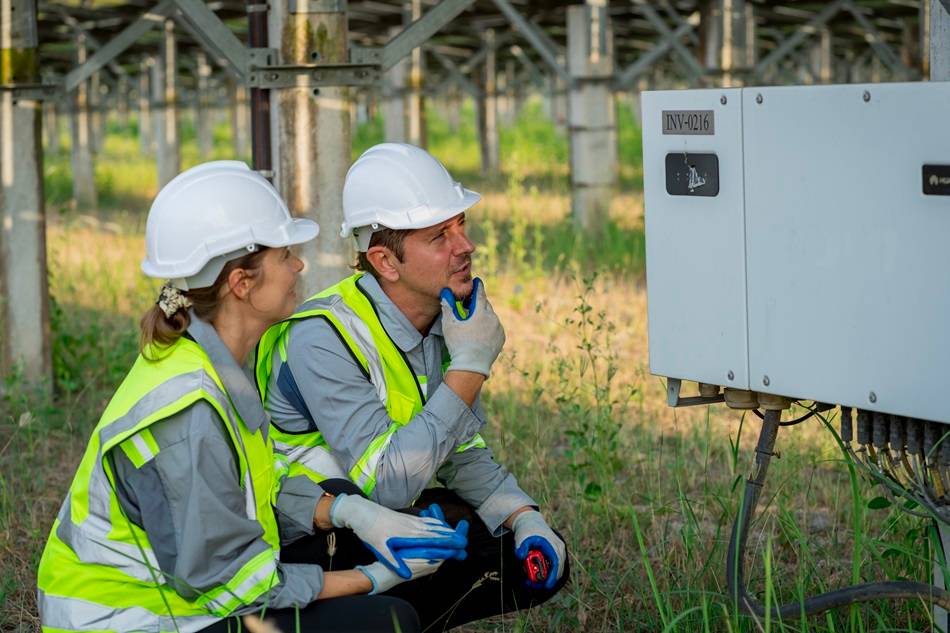The most common failures of the power system and their consequences
 Failures in the power system
Failures in the power system
Power system failures may pose a serious threat to people’s functioning and work. That is why the topic of energy security is so important in the public debate. What are the most common problems with the power grid, what are examples of failures and their possible consequences?
Even the best secured and managed systems may fail sooner or later. The situation is no different in the case of the power system. Many factors may contribute to the occurrence of a failure, which will have significant consequences. After all, the operation and functioning of the power grid are influenced by, among others, atmospheric factors, human errors, as well as technical issues related to, for example, the wear of materials and consumable parts.
Examples of network failures in Poland and around the world
A power failure most often occurs unexpectedly and is difficult to predict. If it were otherwise, the potential causes of the failure could be easily removed and prevented. However, this does not always turn out to be possible. An example of a failure that occurred in Poland and affected many people is the one in Szczecin on April 8, 2008, called the failure of the century. During the night, two main power lines supplying the city went down. April 8, 2008, called the failure of the century. During the night, two main power lines supplying the city went down. The message regarding the network failure appeared already in the morning. The lack of electricity caused a number of problems for residents, e.g. the inability to make purchases even in small, open stores (non-functioning cash registers), the inability to raise electric external blinds in houses, which for some meant 24-hour darkness, as well as the closure of workplaces, schools and kindergartens. The effects of the failure were removed within 1 day.
Another example from the Polish history is June 26, 2006, when a power failure affected up to several million people, especially in the north-eastern part of Poland. Due to weather conditions (heat), the national transmission network was heavily overloaded, and the failure concerned, among others, power plants in Ostrołęka and Kozienice. The power outages lasted several hours.
A prime example of a network failure is the blackout in India in 2012, which left approximately 620 million people without electricity (nearly 10% of the world’s population). The functioning of the country was paralyzed, despite the relatively quick removal of the failure.

Are we at risk of a blackout?
The greatest concerns of electricity consumers are widespread network failures, which may cause longer-term problems with electricity supply. The main cause for concern is the large role of electricity, which, especially in the case of individual consumers, cannot be easily replaced. For this reason, many people ask whether we are at risk of a blackout. To answer it, it is worth asking one more question – about the most common causes of power system failures.
The most common power system failures
Power outages can be caused by a variety of factors. Among them, special attention should be paid to weather conditions. The mentioned failure in Szczecin was caused by sudden, violent snowfall. In the case of the failure on June 26, 2006, heat played a major role. Climate change and the increasing frequency of violent weather phenomena may contribute to further power failures in Poland. A fallen power pole, a broken overhead power line or a damaged underground power line – each of these situations may occur as a result of atmospheric factors.
Among the possible causes of failure, we cannot forget about outdated infrastructure, which may be a weak point of the network. In such cases, removing the failure may prove to be a short-term solution, as the entire network or one of its more important elements may require modernization. When analysing cases of network failures, it should also be remembered that most often such situations occur as a result of a combination of various factors (e.g. failure of the weakest, outdated or worn-out point of the network as a result of violent weather phenomena).
Power system failures – consequences
Any power failure may have serious consequences. The lack of electricity is particularly dangerous for some strategic areas of the entire country – just to mention the health service, which may pose a direct threat to people’s health and life. However, in the event of a failure, basically every area of our daily lives would be affected in some way. Inability to charge a computer, difficulties with connecting mobile phones, non-functioning traffic lights, stopping trains or trams – the negative consequences of power failures could be listed for a long time.
Can you protect yourself against network failures? This is 100% impossible, but you can prepare for such situations. If we have such an opportunity, it is worth investing in a home electricity storage – a particularly effective and desirable solution in the case of RES installations. It is also worth being individually prepared for a possible failure – charged power banks, battery-powered flashlights, traditional candles, and even a tourist gas stove or battery radio – these are just a few things that are always worth having prepared “just in case”.